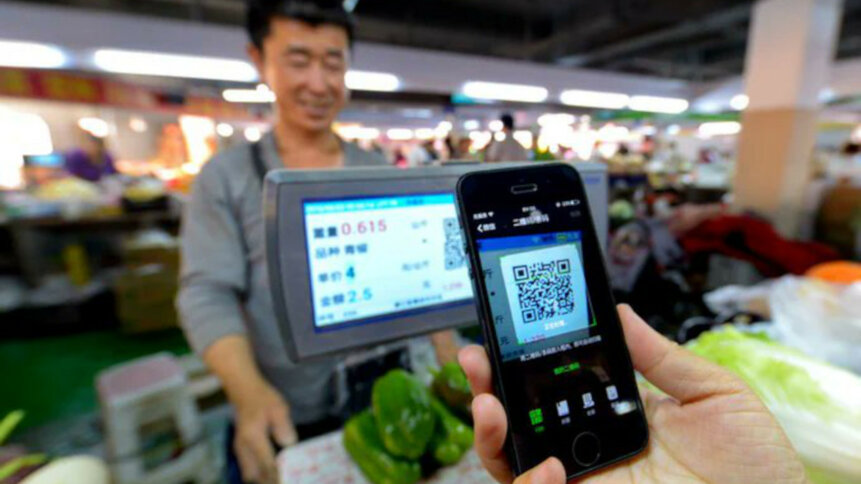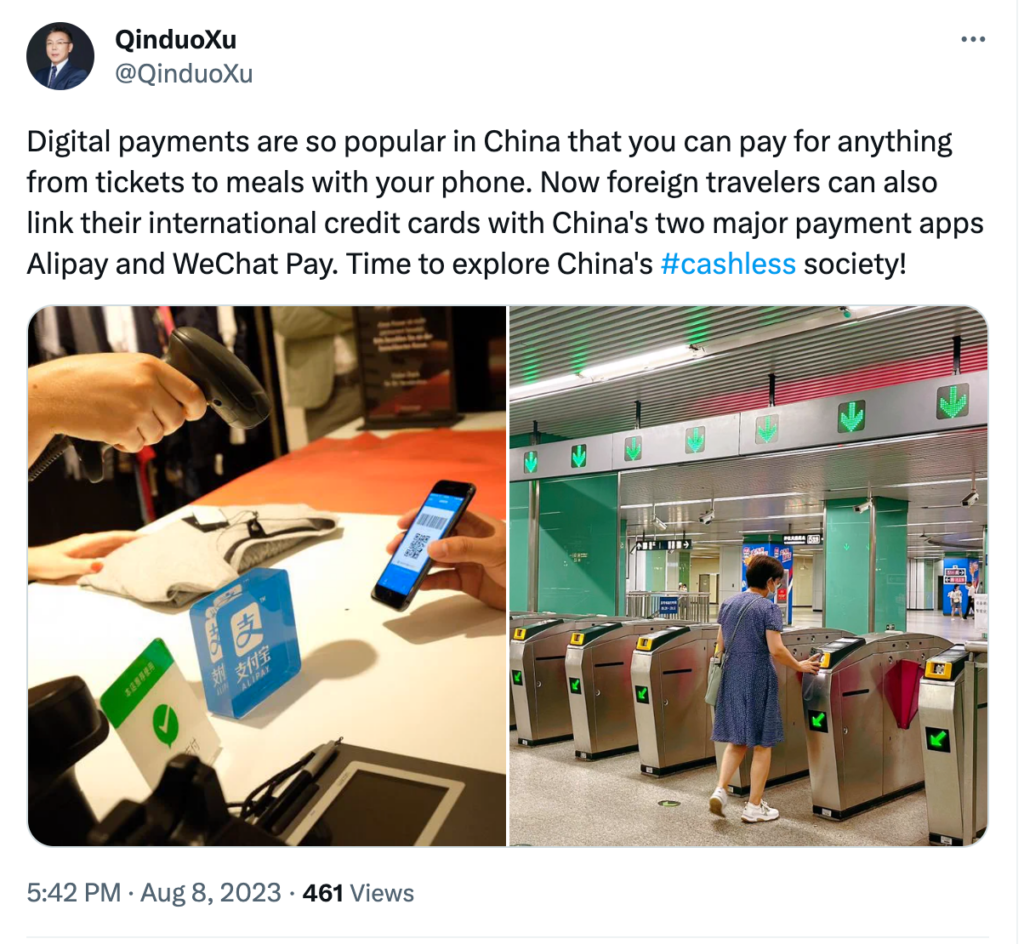Overseas visitors can now go cashless in China

WeChat payment is the blueprint of Elon Musk’s aspirations for X. Now, foreigners can use the cashless payment method.
Thanks to updates recently announced by leading mobile payment solutions WeChat Pay and Alipay, short-term visitors to China now have access to cashless payments.
Previously, access to the payment platforms required a local bank account, which effectively locked most foreign visitors out of using them. Mobile payment has been the dominant payment method in China since the late 2010s, owing largely to its ease of use.
Despite previous warnings from China’s central bank against rejecting cash payments due to fears the practice could make people “lose confidence in cash”, the ubiquity of apps like WeChat Pay and Alipay have seen many businesses stop accepting cash altogether, especially in major cities like Shanghai and Beijing.
This has long been an issue for short-term visitors, who struggle to spend paper money.

A Tweet welcoming tourists to explore cashless China.
Although domestically-issued credit cards under Visa and Mastercard were already supported by China’s mobile payment networks, foreign-issued credit cards were not.
Mastercard announced on June 21 that cardholders are now able to link credit and debit cards to Alipay’s digital wallet, enabling international travelers to “pay like a local” in China, without a local bank account.
Shortly afterwards, Tencent – operator of popular chat app WeChat and its associated payment network – announced that it is “deepening its collaboration” with international card organizations including Visa and Mastercard in an effort to improve overseas users’ digital payment experience.
What is WeChat?
Founded initially as the payments arm of e-commerce giant Alibaba, Alipay is a payment app and digital wallet which boasted 1.3 billion users in 2022. Users save their debit and credit card details to the app, which then lets them make payments with their mobile phone.
Alipay owned around 80 percent of China’s mobile payments solutions market for five fiscal quarters in a row, starting in the third quarter of 2013.
WeChat Pay is a virtual wallet found within WeChat, a hugely popular social media, instant messaging, and now digital payment app. The app has been making international headlines following Elon Musk’s recent rebranding of Twitter.

Musk wants what WeChat has. Source: Getty Images.
Musk previously stated that he hopes to turn the new brand, X, into a WeChat-inspired “everything app”. In a leaked meeting transcript from June last year, he tells Twitter employees that “[y]ou basically live on WeChat in China because it’s so useful and so helpful to your daily life. And I think if we can achieve that, or even get close to that with Twitter, it would be an immense success.”
Released in 2013, two years after its parent app’s initial release in 2011, WeChat Pay quickly became a major competitor for Alipay. It saw huge success in its first year by leaning into the social elements of the WeChat app: early adoption was driven largely by its digitized version of the Chinese Hong Bao custom, the tradition of gifting cash-filled red envelopes on special occasions.
WeChat Pay’s digital version let users send up to USD$29 to their in-app friends, and approximately 16 million red envelopes were exchanged during Chinese New Year’s Eve in 2014. This rose to an impressive 1 billion in 2015.
Unfortunately, overseas users will not have access to this function without a local bank account; short-term WeChat Pay users will be unable to conduct any money transfers via the app.
Overseas tourists are estimated to have spent USD$131 billion in mainland China in 2019, the same year that Visa and Mastercard commenced their partnerships with Tencel and Ant Group, owner of Alipay and affiliate of Alibaba Group.
YOU MIGHT LIKE

X and Musk and rock ‘n’ roll
These initiatives did allow some overseas customers to use their credit cards in China, but at the time the ability to process international credit cards was limited to a select number of businesses.
The revival of these partnerships coincides with the resumption of travel and tourism to China following the country’s pandemic lockdowns.
Spending limits for overseas visitors on WeChat Pay are currently set at 6,000 yuan (approx. USD$835) per day, 50,000 yuan per month, and 60,000 yuan per year. Fees are waived for payments under 200 yuan, but any amount above this carries a 3% fee.









